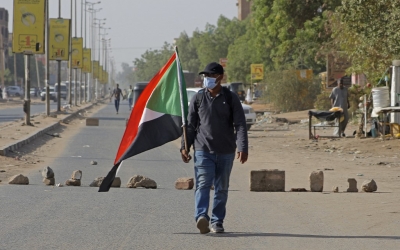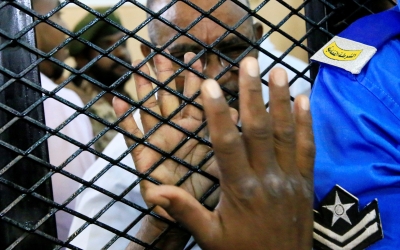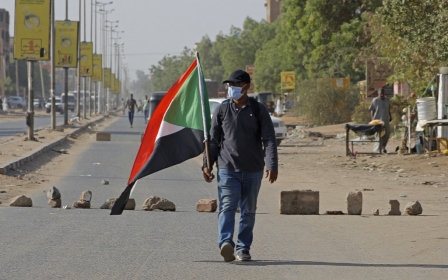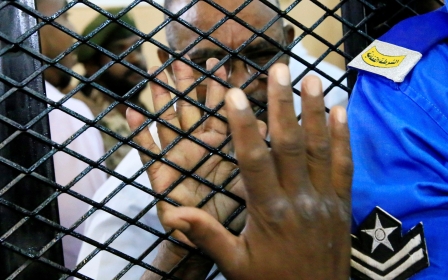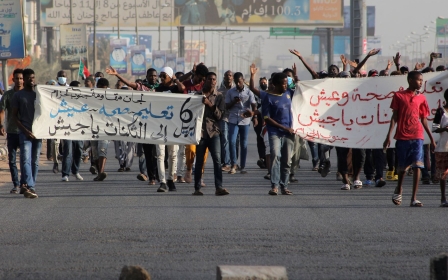Sudan: Security forces 'forcibly disappeared' scores of protesters since coup
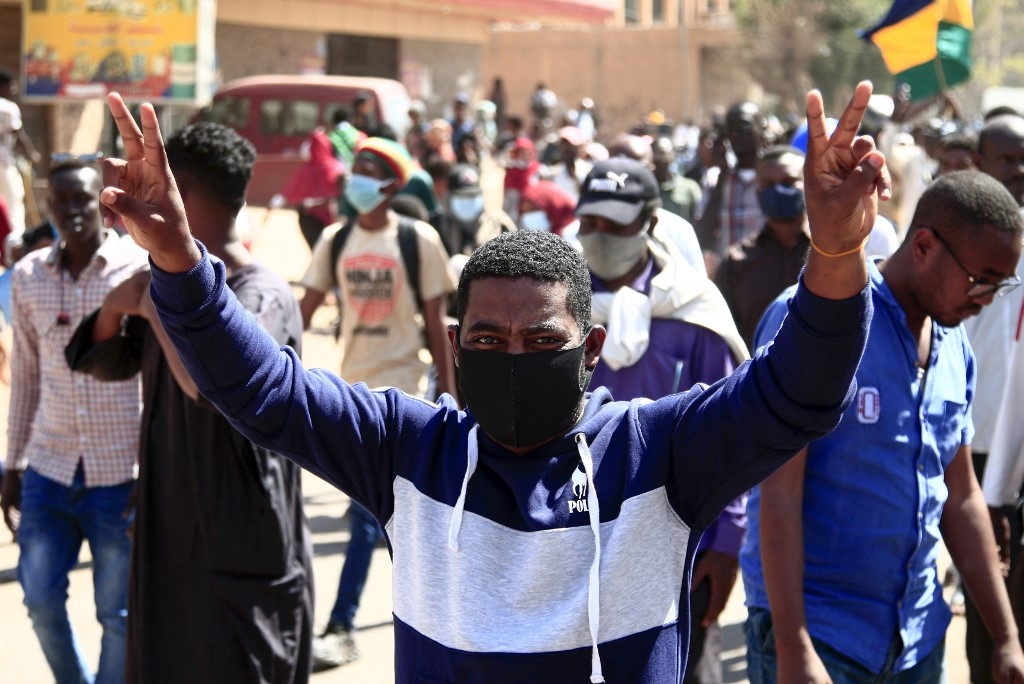
Sudan’s security forces have unlawfully detained hundreds of protesters since December and forcibly disappeared scores as part of a clampdown on opposition to October's military coup, Human Rights Watch (HRW) said on Thursday.
The US-based group called on Sudanese authorities to free all those unlawfully detained and for the international community to impose targeted individual sanctions on those responsible.
Around 1,000 people have been arrested in the clampdown, including women and children, according to a UN estimate last month.
The security forces arrested protesters during or after demonstrations against the coup, while others were grabbed off the streets, or from their cars or homes, HRW said.
The organisation identified various sections of the security forces, including anti-riot police, Central Reserve Police (CRP), and military units from the Sudan Armed Forces (SAF), along with unidentified plainclothes agents, as carrying out the arrests.
New MEE newsletter: Jerusalem Dispatch
Sign up to get the latest insights and analysis on Israel-Palestine, alongside Turkey Unpacked and other MEE newsletters
"Security forces have beaten and otherwise ill-treated detained protesters, including stripping child detainees naked and threatening sexual violence against women," HRW said in a statement.
Crime under international law
Sudan has been gripped by deepening unrest since the 25 October coup led by army chief Abdel Fattah al-Burhan.
The crackdown on regular mass protests has so far seen 94 killed and hundreds wounded, according to medics.
On 26 December, Burhan issued an emergency order granting security forces immunity and restored arrest powers to the General Intelligence Service (GIS), which has a track record of serious abuses, HRW said.
The emergency order overturned a decision by the transitional government to deny the agency arrest powers.
Since the move, arbitrary arrests of protesters have spiked, with the authorities abusing their emergency powers to carry out unlawful detentions, including incommunicado detentions, the organisation said.
The security forces were found to generally detain protesters in police facilities or undisclosed locations before transferring them to prison without bringing them before a court or a prosecutor.
Refusing to acknowledge a person’s detention or to disclose their whereabouts in custody can constitute an enforced disappearance, a crime under international law.
'Unlawful detentions'
The United Nations Human Rights Council’s designated expert on Sudan visited the country on 21 February, and in and around his visit, the authorities released on bail 115 people in Khartoum charged with creating a public nuisance.
After his visit, HRW said the arbitrary arrests resumed.
A lawyer told the organisation that security forces detained around 100 men between March and April and moved some of them to other prisons in and outside Khartoum.
On Saturday, authorities released 25 detainees from Soba prison in Khartoum.
Sudan’s allies should press the military to end the arrests, allow independent monitors access to detention sites, and repeal the abusive emergency powers being used to justify these violations, HRW said.
“This organised campaign of unlawful detentions designed to stifle the resistance movement won’t stop without concerted, coordinated pressure,” said Mohamed Osman, Sudan researcher at HRW.
“The regional and international communities should not lose sight of the protesters’ demands for a civilian, rights-abiding rule and should roll out concrete measures to hold to account those leading the repression.”
Middle East Eye delivers independent and unrivalled coverage and analysis of the Middle East, North Africa and beyond. To learn more about republishing this content and the associated fees, please fill out this form. More about MEE can be found here.


